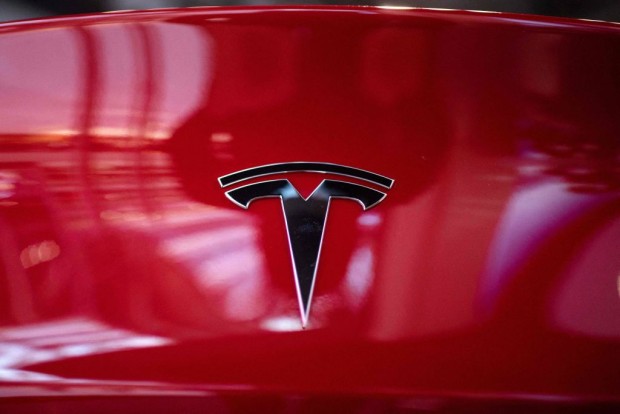A Tesla heat pump problem forces the recall of nearly 27,000 vehicles in the United States because the cabin heating systems may not defrost the windshield quickly enough due to faulty software.
(Photo : NICOLAS ASFOURI/AFP via Getty Images)
The Tesla heat pump problem affects nearly 27,000 vehicles in the United States as they need to be recalled after an investigation showed that their cabin heating systems might not defrost the windshield quickly enough, as per ABC News. With the heat pumps in some Tesla vehicles not working properly during cold weather, visibility becomes a major problem for the affected drivers, thus increasing the risk of a crash.
According to documents Tesla gave to the National Highway Traffic Safety Administration (NHTSA), a software error can cause a valve within the vehicle's heat pump to open unintentionally. That would then trap the refrigerant inside the evaporator, reducing the car's defrosting performance in the process.
Electric vehicles often use heat pumps to warm their cabins in frigid temperatures, as it uses less energy than other heating methods. That is vital for electric vehicles as the heat pump's usage would not deplete its range as much. Tesla started to put heat pumps on some of its vehicles in late 2020 to help them conserve energy.
Faulty software to blame for heat pump issue
According to Consumer Reports, Tesla told the NHTSA that the heating problem started after a software update back in December. According to Tesla, the issue can deplete the refrigerant in some heat pump parts. That would cause the compressor to stop working as a fail-safe measure, leading to the loss of cabin heating, which happens primarily when the temperature is 14 degrees Fahrenheit (minus 10 degrees Celsius) or colder.
Apart from the cabin heat not working in the recalled vehicles, their defrosters may also not perform well enough to comply with federal motor vehicle safety standards for windshield visibility. According to the NHTSA, windshield defrosts performance that does not fully comply with FMVSS 103 may result in reduced windshield visibility in certain conditions, increasing the risk of a crash in some cases.
Related Article: Hyundai and Kia Recall Nearly 500K Vehicles Due to Fire Risk from Anti-Lock Brake Control Module
2021-22 Model S, X, 3, and Y vehicles included in the recall
Owners of the affected vehicles may also notice an error message on their cars' user interface, with an announcement stating that heating and air conditioning are limited or unavailable. The vehicle's blower motor, which sends air into the car's cabin, is not affected by the issue and remains operational.
According to documents posted by the NHTSA, the "recall population includes certain new Model Year ("MY") 2021-22 Model 3, Model Y, Model S and Model X vehicles built with heat pump and running firmware release 2021.44 through 2021.44.30.6 at the time of customer delivery."
Electrek reported that even though several owners have filed complaints to Tesla and the NHTSA regarding this particular issue, the automaker said it is not aware of any crashes, injuries, or fatalities that have resulted from this problem. The heating problem first emerged last winter with the latest versions of the Model Y and Model 3, the ones affected. These are vehicles that Tesla equipped with the automaker's new heat pump system.
READ MORE ON AWN:
Tesla Now Holds About $2 Billion in Bitcoin, Giving Major Boost to Cryptocurrency
Semiconductor Shortage Hits Ford Again; Automaker Cuts Production of Mach-E, F-150, and Bronco
See Now: OnePlus 6: How Different Will It Be From OnePlus 5?




























